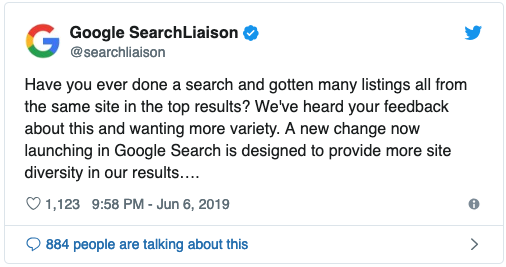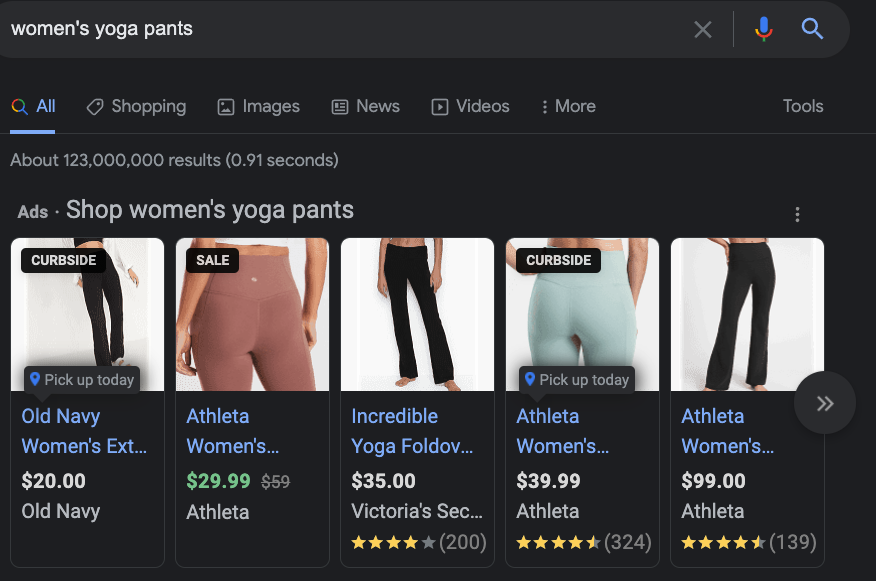A question we often get asked from our clients is whether or not it makes sense to have multiple domains for different product offerings or services. This is a great question! Companies of all sizes have adapted to marketplace demands, diversified their product offerings, or added new revenue streams to their operations. But does it make sense for these companies to have multiple domains? What does this mean for SEO? The short answer is, it's going to depend.
Let's get one thing out of the way first. When it comes to multiple domains, this article will focus on multiple root domains, not subdomains. In this example, the root domain is example.com.
A domain = example.com
A subdomain = blog.example.com
So, when it comes to multiple domains, what is best practice? This article will break down the pros and cons of multiple domains and answer the big question: what is best for SEO?
The Pros of Having Multiple Domains
Greater flexibility with products/services
For large companies with multiple products and services, using multiple domain names provides flexibility to silo your product or service suite while still maintaining the ability to cross-promote.
An excellent example of this is Microsoft. With multiple products, services, and support databases, Microsoft does not house each element of their company on one root domain. While www.microsoft.com is used as an umbrella page, sites like www.office.com and www.xbox.com are home to their respective products, the Microsoft Office Suite, and of course, Xbox. These sites house forums, support and knowledge bases, and shopping options.
These independent websites allow Microsoft to market and advertise their products separately while maintaining brand awareness and authority in the marketplace. Each entity has its own brand under the Microsoft umbrella- with unique value propositions, buyer personas, and marketing and content strategies.
You may appear in more SERPS
A few years ago, there was no cap on how many times a website would appear on the first page of Google for a particular keyword. In 2019, however, Google launched a new algorithm update that limited websites to only appearing twice for any specific search term.

Ergo, if a company has multiple websites, they may appear in more SERPS than their competitors who only have one website. This, of course, is predicated on your company having a robust content and SEO strategy, but more on that later.
Allows for better segmentation (and market share)
Another use case for multiple domains is when your company is multifaceted and diverse enough in its product offerings that different websites are required to target different buyer personas.
An excellent B2C example of this is The Gap, Inc. In addition to GAP, the clothing store, the GAP, INC. owns and operates Old Navy, Banana Republic, and Athleta. Each brand is unique and diverse in its own right but operates under separate domains to maintain individual brand identity and to allow GAP, Inc. to cater to a diverse set of buyer personas.
Take an item like yoga pants, for example. Old Navy may sell pairs of its yoga pants for a lower price point- perfect for their target customer. Athletica, meanwhile, sells its yoga pants at a very high price point- on par with its more affluent consumer. Options at different price points are available to me when I search for 'women's yoga pants.'

I, as the consumer, now see several options- and can choose between the $20.00 pair or the $99.00 pair if I so desire. Regardless of my decision, GAP, Inc. will benefit. While your company may not be on the same operational scale as GAP, Inc., or sell yoga pants, the strategy still stands- if your organization’s product line is diverse enough that it demands distinct buyer personas- it will be advantageous to split your website and embark on a strategy to control more market share.
You have a global presence
Larger companies with a global presence will often choose to structure their website domain strategy using a country code top-level domain name (ccTLD). You may recognize these types of domains when you travel overseas. Think sites like:
www.amazon.de in Germany
www.ebay.es in Spain
www.nike.uk in the United Kingdom
It's common for large companies to translate their website into different languages based on location. Google does not penalize these sites for duplicate content as long as the site is translated correctly and the users of the site are from the correct country. If you’re a company here in the United States that does work overseas, multiple domains with a ccTLD is a perfectly reasonable option.
The Cons of Having Multiple Domains
It is resource and time-intensive
There’s a lot that goes on behind the scene of a well-working, informative, user-friendly website. There’s your developer, sure. But there’s also your marketing strategist, your content writer, your marketing operations specialist, your PPC specialist, the list goes on. All those people work together to ensure that your website is a well-oiled, lead-generating machine.
Is your company committed to the resources required to make multiple websites worth the investment? While your company doesn’t need to be the size of a Microsoft or an Amazon, you will need to ensure that your operations are robust enough to maintain and cultivate an independent website and related ecosystem.
More domains = more money on strategic work
How is your current site ranking? Are you being found for the right keywords? Are you maximizing your website's true potential? If so, multiple domains may be the right choice for your business. But if you're failing to keep up with your competitors right now, splitting your focus is not the best idea.
Multiple websites will, of course, require duplicate technical setup, development, and maintenance, but it will also require duplicate strategic work. Does your operation have the ability to double down on your digital marketing efforts? What about your social media strategy? Your content marketing? When everything exists in one place- your website strategy remains focused on one singular website, clearing the way for straightforward conversion paths and a strong, linear focus on your primary business.
Related: Considering a B2B Content Marketing Agency? Know the Pros and Cons
You run the risk of duplicate content
Not to harp too much on the points made in my first two cons, but the more resource-intensive a website strategy, the more you run the risk of duplicate content. In some ways, duplicate content makes sense. It's the same company, why can't the information be the same? For this very reason, companies will simply copy and paste large portions of their website to another, only changing content for the new product or service pages.
Here's why that's a bad idea. When more than one URL shows the same content, the search engines don't know which site to rank higher and will eventually penalize both pages by giving preference to other websites.
Having multiple websites doesn't permit you to simply copy and paste copy from one website to another. When creating a new website, that website should be treated as a completely separate entity- with new pages, contact forms, about us sections, and blog articles.
Multiple domains will pose a problem if your company doesn't have the staffing or strategic capabilities to concurrently run and upkeep two websites.
Multiple analytics may pose a problem
When a company has multiple domains, it must also have multiple analytics tools to manage and maintain. While this isn’t necessarily a bad thing, it does mean that the company needs to have the right resources to manage these assets. Does your team have a dedicated resource for managing your analytics and interpreting the results?
Furthermore, a system needs to be put in place to ensure that users can be tracked between your various websites- as any user who comes to site A from site B will be tracked as a referral from site A. Not from the original source that brought them into your company’s web in the first place.
Think through the ramifications of overseeing multiple websites- if your company has a dedicated marketing team to manage, interpret, and act on these tools, great! If you’re having a hard time tracking down the employee who has the Google Analytics password, then multiple domains may not be the best option.
Are there large companies that choose to have just one domain?
Yes! There are plenty of companies that have a single domain. Companies like Apple and Nike have chosen to keep the entirety of their product line on one domain- despite immense brand awareness of their products (and product lines).
Another example of this strategy is Oracle. Known as one of the most prominent players in the software industry, Oracle has grown significantly, relying on an aggressive acquisition strategy to diversify its portfolio. As of February 2022, Oracle has a market cap of over 220 billion dollars. Oracle has purchased some of the biggest names in AI, middleware, and server expansion- and keeps those products under the Oracle name and www.oracle.com domain. Keeping these various products under the Oracle umbrella helps customers understand that they are owned by Oracle- giving them the symbolic ‘stamp of approval,’ utilizing Oracle’s clout and position in the industry to elevate their subsidiary companies.
Are multiple domain names for one website best for SEO?
Here's the bottom line. If you’re introducing a new, radical product with little informational and product spec overlap, go for it! But maintaining multiple websites and domains is best left for companies with large-scale operating power. If your business is diverse enough to warrant multiple websites, it must be backed up with the appropriate resources to develop, execute, and maintain multiple websites.
Thinking over your company's marketing strategy? Conveyor Marketing Group specializes in B2B lead generation, website redesign, Hubspot management, and sales acceleration. Get in touch with the B2B marketing experts today.













